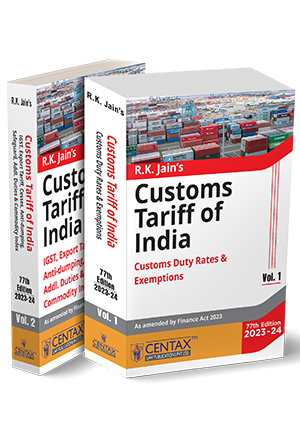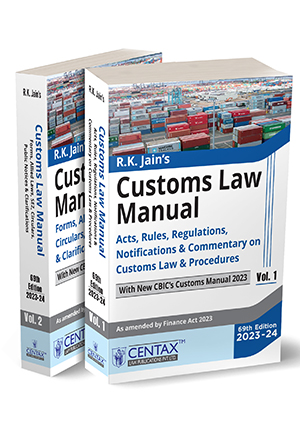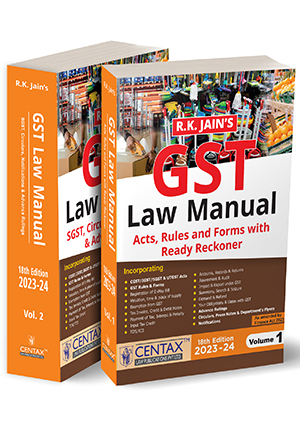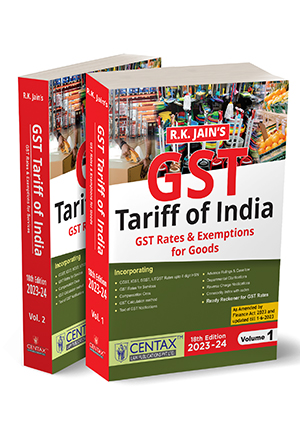Tax Audit Assignment Limits for Chartered Accountants (CAs)
- CA|Exam|
- 5 Min Read
- By Taxmann
- |
- Last Updated on 20 May, 2024

As of the latest guidelines set by the Institute of Chartered Accountants of India (ICAI), Chartered Accountants (CAs) in practice are subject to the following limits on tax audit assignments under Section 44AB of the Income Tax Act, 1961: – Individual Chartered Accountant: A single CA can conduct a maximum of 60 tax audit assignments in a financial year. This includes audits conducted individually or as a partner in a firm. – Partnership Firms: The limit of 60 tax audit assignments applies to each individual partner in a firm. However, the firm as a whole can undertake audits up to the combined limit of all its partners. For example, a firm with 4 partners can conduct up to 240 tax audits (4 partners x 60 audits each). – Consideration of Additional Assignments: Any assignment involving a statutory audit, internal audit, concurrent audit, or any other audit that is required by law to be conducted by a Chartered Accountant does not count towards the limit of 60 tax audits under Section 44AB. – Monitoring and Reporting: CAs and their firms must carefully monitor their audit assignments to ensure compliance with these limits. Breaching the prescribed limit can lead to disciplinary action from the ICAI. These limits are put in place to ensure that CAs can dedicate adequate time and resources to each audit assignment, maintaining the quality and reliability of their audits.
Table of Contents
- Introduction
- What types of Audits are conducted on an entity?
- Understand the limits on Audit in detail
- What about violations before the order of the Supreme Court?
- What action can be taken against a member for non-compliance?
1. Introduction
The Supreme Court of India has confirmed the validity of the Institute of Chartered Accountants of India’s (ICAI) regulation that restricts Chartered Accountants from undertaking more than the “specified number of Tax Audit Assignments” under section 44AB of the Income Tax Act, 1961 within a financial year, with the current cap set at 60 assignments.
It ruled that this limitation does not infringe upon the fundamental right to practice a profession as guaranteed by Article 19(1)(g) of the Constitution.
Emphasizing the ICAI’s role in upholding standards, the Court remarked,
“ICAI has received recognition as a premier accounting body for maintaining the highest standards and the true test lies in the enforcement of these standards.”
2. What types of Audits are conducted on an entity?
| Type | Whether covered by the limits of Council | Limit |
| Company Audit under Section 141 of the Companies Act, 2013 |
Yes |
30 |
| Tax Audit under Section 44AB of the Income Tax Act, 1961 |
Yes |
60 |
| All other types of Audit for example, Cost, Stock, Internal Audit, Process Audit, Management Audit, etc. |
No |
Unlimited |
3. Understand the limits on Audit in detail
3.1 Clause 1 of Part II of the Second Schedule to the CA Act, 1949
A member of the institute shall be deemed to be guilty of professional misconduct if he contravenes any of the provisions of this act or the regulations made thereunder or the guidelines issued by the council.
3.2 Tax Audit: Chapter VI of Council General Guidelines, 2008
A practicing Chartered Accountant shall not accept, in a financial year, more than “60” tax audit assignments under Section 44AB of the Income Tax Act, 1961. In the case of a CA firm, 60 shall be the limit for every partner of the firm.
Let us understand this with an example. Suppose Mr Yash, Mr Vaibhav, and Mr Gautam are CAs in practice in a CA firm named GGG & Associates. The total number of tax audits that GGG & Associates can perform is 60*3 = 180, and the tax audit report accepted by the firm can be signed by any of the partners on behalf of the firm i.e., Mr Yash alone can sign all 180 tax audit reports.
If Mr Yash is also a partner in SSS & Associates, then the number of tax audit assignments taken for all firms together concerning Mr Yash should not exceed 60.
Audits conducted under Sections 44AD, 44ADA, and 44AE of the Income Tax Act, 1961 shall not be taken into account in order to count the tax audits conducted.
Audit of head office & branches of the same concern will be construed as only one assignment.
3.3 Statutory Audit: Chapter VIII of Council General Guidelines, 2008
Similar to the above tax audit limitation, a practicing CA shall not hold at any time an appointment of more than “30” audit assignments of Companies under Section 141 of the Companies Act, 2013. There is no restriction on the number of audit assignments of one person company (OPC) and dormant companies i.e., they are outside the preview of the limit of 30 assignments.
As per Section 141(3) of the Companies Act, 2013, the maximum limit of company audits is “20” excluding one person company, small company, dormant company having paid up capital less than 100 crores.
Now, there is a discrepancy between the limits set by the council guidelines and those established by the Companies Act. Which limit should the Chartered Accountants follow?
The answer is simple à Both
Let us understand this with an example,
| Type of Company | Maximum Statutory Audits by a CA |
| OPC/ Dormant Company | Unlimited |
| Small | 30 |
| Private Companies with a net worth of less than 100 Crores |
30 |
| Others | 20 |
If a CA performs audit of different types of companies, for example, small companies and public companies, he can perform an audit of maximum 20 public companies and can utilize the remaining limit of 10 (30 – 20) for small companies or for private companies with net worth less than 100 Crores.
4. What about violations before the order of the Supreme Court?
The Court determined that the clause would be deemed effective on 1st April 2024, and clarified that the disciplinary proceedings initiated against the petitioners are quashed based on the doctrine of legal uncertainty.
Additionally, the Court ruled that the ICAI is permitted to raise the number of audits that a Chartered Accountant can undertake.
5. What action can be taken against a member for non-compliance?
If the member does not perform tax and statutory audits within the above-prescribed limits as per the council guidelines, he/she is in violation of the Second Schedule and the matter will be placed before the Disciplinary Committee and if found guilty, it can:
- Reprimand the member
- Remove the name of the member permanently or for any duration from the Register of members
- Impose a fine up to Rs. 5,00,000
Further, any member aggrieved by an order of the Disciplinary Committee can prefer an appeal within 90 days before the appellate authority.
In conclusion, the Supreme Court’s decision to uphold the ICAI’s regulation limiting the number of tax audit assignments to 60 per financial year reinforces the importance of maintaining professional standards within the accounting profession. By addressing the implementation date and clarifying disciplinary procedures, the Court has provided a clear framework for future compliance and this decision not only protects the integrity of the profession but also balances the rights of practitioners with the need for rigorous professional oversight.
Disclaimer: The content/information published on the website is only for general information of the user and shall not be construed as legal advice. While the Taxmann has exercised reasonable efforts to ensure the veracity of information/content published, Taxmann shall be under no liability in any manner whatsoever for incorrect information, if any.

Taxmann Publications has a dedicated in-house Research & Editorial Team. This team consists of a team of Chartered Accountants, Company Secretaries, and Lawyers. This team works under the guidance and supervision of editor-in-chief Mr Rakesh Bhargava.
The Research and Editorial Team is responsible for developing reliable and accurate content for the readers. The team follows the six-sigma approach to achieve the benchmark of zero error in its publications and research platforms. The team ensures that the following publication guidelines are thoroughly followed while developing the content:
- The statutory material is obtained only from the authorized and reliable sources
- All the latest developments in the judicial and legislative fields are covered
- Prepare the analytical write-ups on current, controversial, and important issues to help the readers to understand the concept and its implications
- Every content published by Taxmann is complete, accurate and lucid
- All evidence-based statements are supported with proper reference to Section, Circular No., Notification No. or citations
- The golden rules of grammar, style and consistency are thoroughly followed
- Font and size that’s easy to read and remain consistent across all imprint and digital publications are applied






